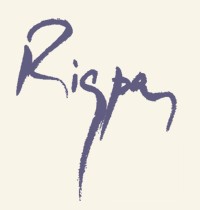Rigpa: Difference between revisions
mNo edit summary |
No edit summary |
||
| Line 1: | Line 1: | ||
[[Image:Rigpa calligraphy 05.jpg|frame|Calligraphy by Sogyal Rinpoche]] | [[Image:Rigpa calligraphy 05.jpg|frame|Calligraphy by Sogyal Rinpoche]] | ||
'''Rigpa''' (Skt. ''vidyā''; [[ | '''Rigpa''' (Skt. ''vidyā''; [[Wyl.]] ''rig pa'') is a Tibetan word, which in general means ‘intelligence’ or ‘awareness’. In [[Dzogchen]], however, the highest teachings in the Buddhist tradition of Tibet, rigpa has a deeper connotation, ‘the innermost nature of the mind’. The whole of the teaching of [[Buddha]] is directed towards realizing this, our ultimate nature, the state of [[omniscience]] or [[enlightenment]]—a truth so universal, so primordial that it goes beyond all limits, and beyond even religion itself.<br> | ||
Rigpa is the special feature of Dzogchen. [[Jikmé Lingpa]] says in his ''[[Treasury of Precious Qualities]]'': | Rigpa is the special feature of Dzogchen. [[Jikmé Lingpa]] says in his ''[[Treasury of Precious Qualities]]'': | ||
| Line 22: | Line 22: | ||
Open to all schools and traditions of Buddhist wisdom, and with the guidance and gracious patronage of His Holiness the [[Dalai Lama]], Rigpa also seeks to explore how the wisdom and compassion of the Buddha’s teachings can benefit many different areas of life in today’s | Open to all schools and traditions of Buddhist wisdom, and with the guidance and gracious patronage of His Holiness the [[Dalai Lama]], Rigpa also seeks to explore how the wisdom and compassion of the Buddha’s teachings can benefit many different areas of life in today’s | ||
world. | world. | ||
==Internal Links== | |||
*[http://www.rigpawiki.org/index.php?title=Category: Rigpa Centres] | |||
*[[Rigpa Shedra]] | |||
*[[Empowerments Given to the Rigpa Sangha]] | |||
*[[Oral Transmissions Given to the Rigpa Sangha]] | |||
==External Links== | ==External Links== | ||
Revision as of 18:59, 14 November 2008

Rigpa (Skt. vidyā; Wyl. rig pa) is a Tibetan word, which in general means ‘intelligence’ or ‘awareness’. In Dzogchen, however, the highest teachings in the Buddhist tradition of Tibet, rigpa has a deeper connotation, ‘the innermost nature of the mind’. The whole of the teaching of Buddha is directed towards realizing this, our ultimate nature, the state of omniscience or enlightenment—a truth so universal, so primordial that it goes beyond all limits, and beyond even religion itself.
Rigpa is the special feature of Dzogchen. Jikmé Lingpa says in his Treasury of Precious Qualities:
- Rigpa, which transcends the ordinary mind,
- Is the special feature of the natural Dzogpachenpo.
And Dodrupchen Jikmé Tenpé Nyima wrote: “Generally speaking, in the instructions on Dzogchen, profound and special aspects are endless.The key point, however, is the differentiation between the ordinary mind and rigpa."
Subdivisions
The Dzogchen teachings mention various aspects of rigpa, such as the 'ground rigpa', the 'essential rigpa' and the 'effulgent rigpa'.
Further Reading
- Dalai Lama, Dzogchen: The Heart Essence of the Great Perfection, Snow Lion, 2004
Rigpa - The Organization
Inspired by this, Sogyal Rinpoche gave the name ‘Rigpa’ to his work and to the vehicle he was developing to serve the Buddha’s teaching in the west. Now an international network with centres and groups around the world, Rigpa aims:
- To present the Buddhist tradition of Tibet in a way that is both completely authentic, and as relevant as possible to the lives and needs of modern men and women, and
- To offer those following the Buddhist teachings a complete path of study and practice, along with the environment they need to experience the teachings fully.
Open to all schools and traditions of Buddhist wisdom, and with the guidance and gracious patronage of His Holiness the Dalai Lama, Rigpa also seeks to explore how the wisdom and compassion of the Buddha’s teachings can benefit many different areas of life in today’s world.
Internal Links
- Rigpa Centres
- Rigpa Shedra
- Empowerments Given to the Rigpa Sangha
- Oral Transmissions Given to the Rigpa Sangha